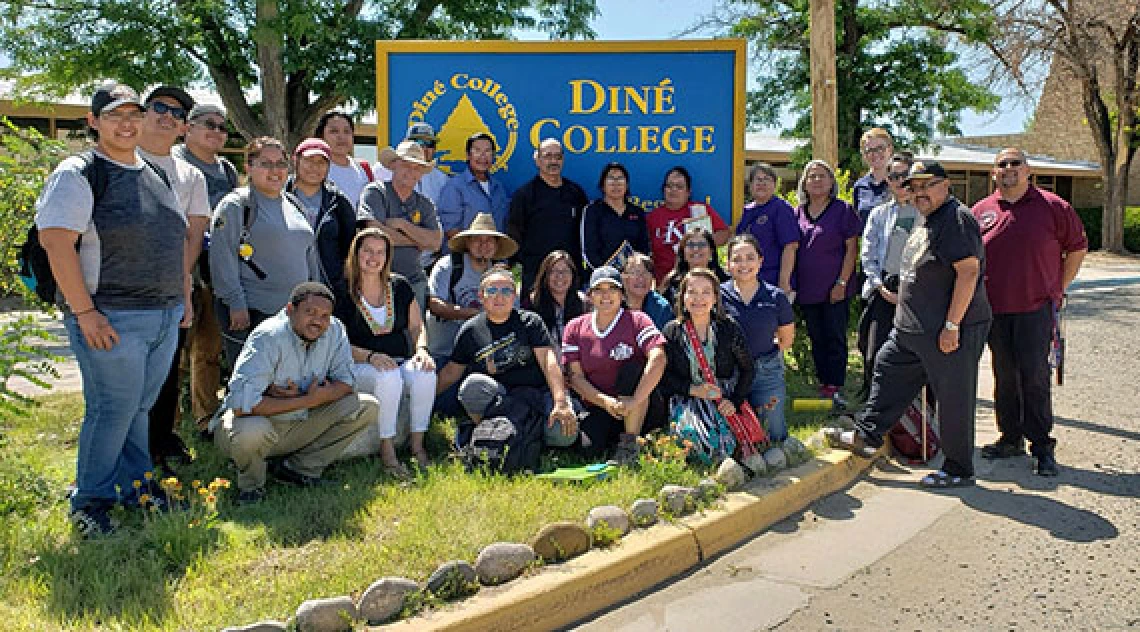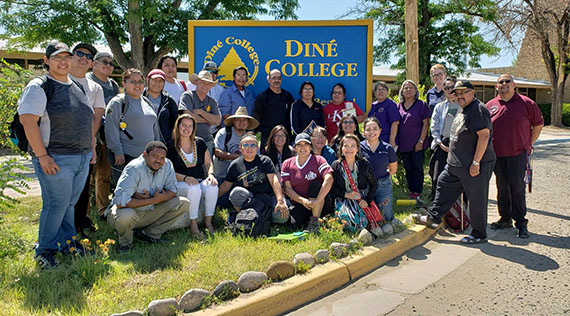UA SRP collaborates with Diné College to teach students how to respond to mine spills

 From June 11-15, Dr. Karletta Chief, director of the UA SRP Community Engagement Core, and Dr. Paloma Beamer, UA SRP collaborator, held a teaching event at the Diné College focusing on the Gold King Mine spill and how to respond to spills.
From June 11-15, Dr. Karletta Chief, director of the UA SRP Community Engagement Core, and Dr. Paloma Beamer, UA SRP collaborator, held a teaching event at the Diné College focusing on the Gold King Mine spill and how to respond to spills.
Fourteen students, National Science Foundation Tribal College and University Program interns, and three faculty members learned over the five-day event how to conduct an emergency response to a spill. This included instruction on how to take water samples and follow protocols such as chain of custody, sample filtration, and data reporting on a water reporting app.
 Students learned how to take samples a variety of ways. Chief explained, “They used standard testing equipment and as well as more citizen-science style equipment that could be purchased from the local store such as mason jars, pool temperature readers and pH strips meant for aquariums.”
Students learned how to take samples a variety of ways. Chief explained, “They used standard testing equipment and as well as more citizen-science style equipment that could be purchased from the local store such as mason jars, pool temperature readers and pH strips meant for aquariums.”
Navajo Community Health Representatives (CHRs) were also on hand to help. CHRs work to improve the general health status of the Navajo people through direct home health care, community health care and health education. The Navajo CHRs program, established in 1968, serves approximately 210,000 Navajo individuals both on and around Navajo Nation.
Chief described how the Navajo CHRs were originally slated to stay for only one and a half days out of the event, to help with direct sample collection, but they arrived early and stayed later, attending the entire event. “They said they had never seen before what happened to the samples they collected and they wanted to know,” Chief said.

The Diné college students really benefitted from having the Navajo CHRs in attendance, according to Chief. “It was really great to see how the students saw them as leaders, almost in an auntie or mother role. It built the capacity of the college students to interact, bond, trust and respond on their own to a spill.”
The event was funded by the Haury Program, which supports “innovative collaborations and scholarship that improves people's quality of life and their capacity to live sustainably in our changing environment.”

